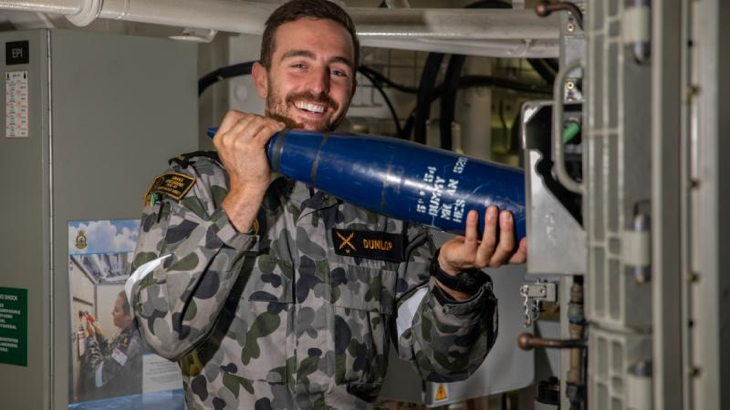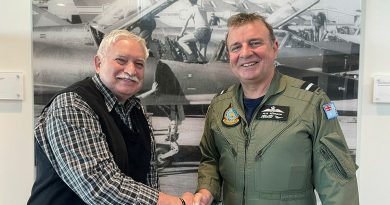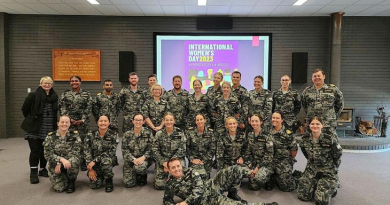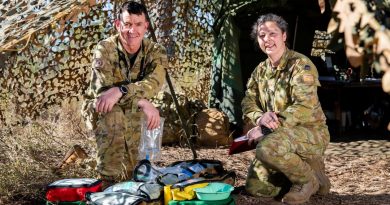Weapon systems maintainer brings more bang for bucks
Share the post "Weapon systems maintainer brings more bang for bucks"

By sourcing local suppliers, testing their solutions and then seeking approval, Petty Officer Stephen Dunlop increased the magazine capacity for the Hobart-class destroyer’s Mk45 gun by 40 per cent.
The weapon systems maintainer’s idea proved effective compared to another costly solution that involved manufacturing parts in the United States.
“It was test and trial. I was able to purchase items, bring them back to the ship and have the weapons electrical engineering officer have a look at the solution and approve it,” Petty Officer Dunlop said.
It was this initiative that helped him receive a Conspicuous Service Medal as part of the King’s Birthday awards for his leadership and commitment.
He said it’s the biggest award of his career and it wouldn’t have been possible without help from mentors and his team.
“It will push me to do more and to go further as well, having received this achievement,” he said.
This isn’t the first time he has been recognised for work with the Mk45 gun. One of his proudest achievements is rectifying a defect that would generally require help of external agencies to repair. However, Petty Officer Dunlop believed he had the experience and a well-trained team to repair the gun.
“I was able to guide my team to find the solution and then develop the repair plan to propose to my superiors for approval,” he said.
The repairs were able to restore full capability to the ship.
“During the course of the repair, I was able to hand over key knowledge to the members of my team, which they will be able to use and in turn impart on other members of the fleet.”
Petty Officer Dunlop has 14 years’ experience maintaining ships weapon systems and their thousands of moving parts.
“It’s very complicated and it’s very hard to know absolutely every single little piece,” he said.
As a maintainer, he said the first thing they do is pinpoint exactly what is wrong with a weapon system.
They explain to command how much capability is lost, outlining what they can and can’t do with the ship.
Next, they test the system components and complete electrical checks to figure out if it is a mechanical, electrical or a hydraulic issue.
A split method is then used to isolate where that defect or fault might be.
“Hopefully we nail down what that is; it’s about time and knowledge.”
As well as the several weapon systems on board the destroyers, his team also maintain explosive ordnance cranes, torpedo doors and the fire sprinkling systems.
.
.

.
.
Share the post "Weapon systems maintainer brings more bang for bucks"





